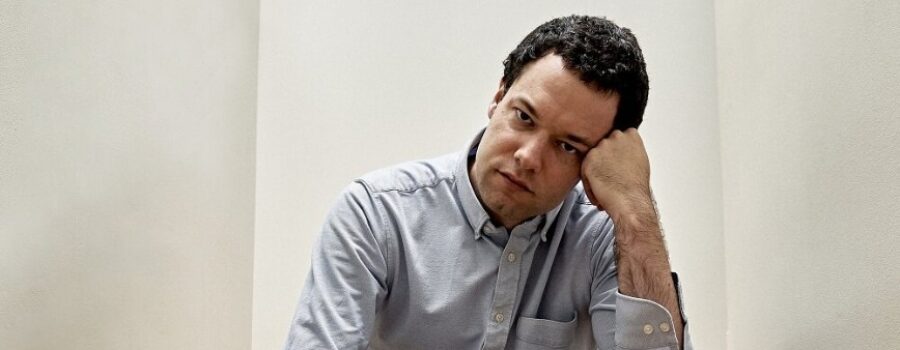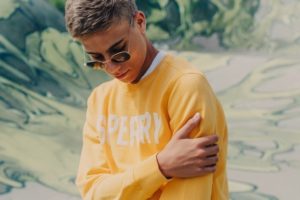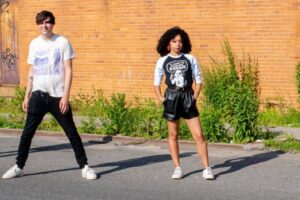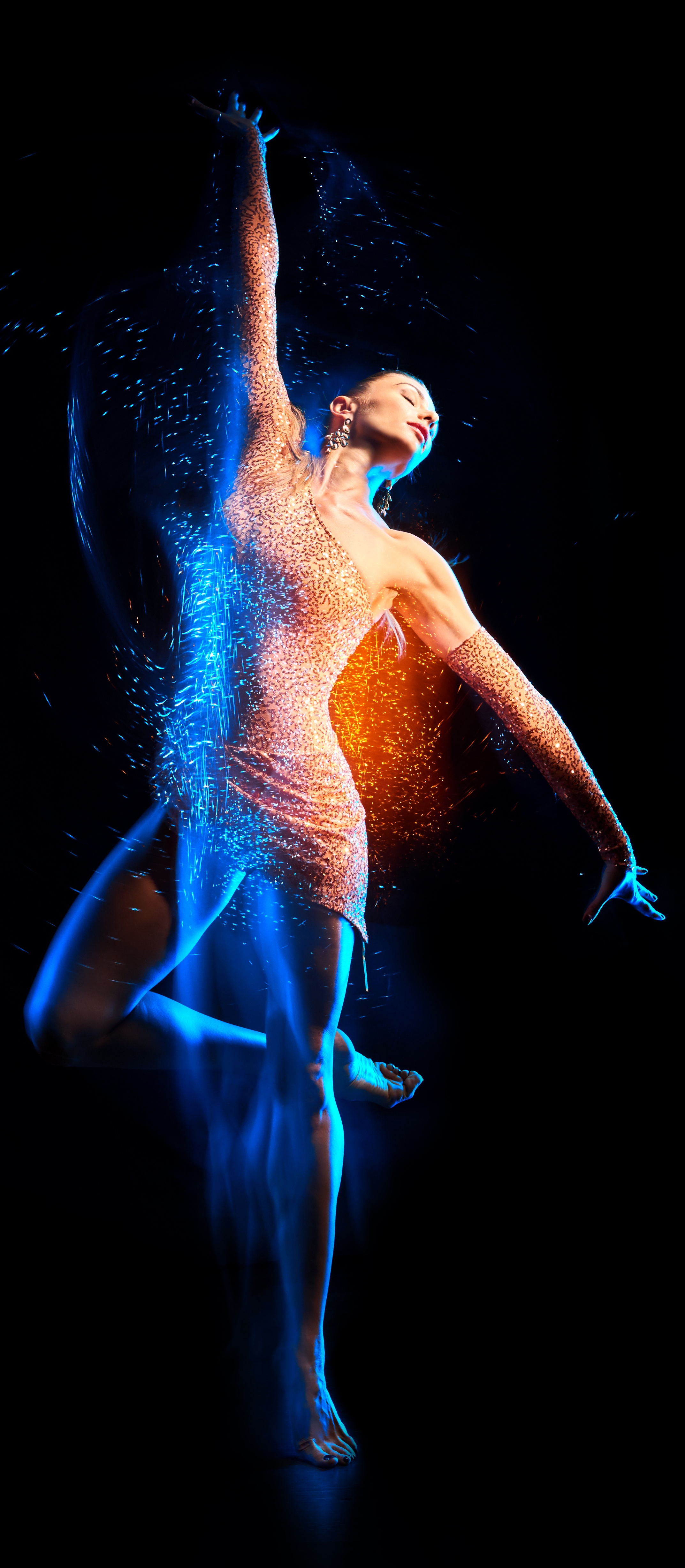Photo Credit: Adam Nagy
Everyone who has entered a classroom knows there are huge differences between doing a project within a group and doing one by yourself. It’s possible those educational memories that push people one way or another when it comes to a career later in life. For Max Foreman, perhaps he was fine doing projects either way because as a musician he’s fared well in bands for years, but he admits that going solo is something that’s been an idea for over a decade now. That’s where our conversation started, and throughout we hit micro and macro levels of decay, talked about our beloved LA music scene, and more.
Kendra: After being part of bands for so long, were there any concerns you had when you’d write/record before that you could kind of were allowed to free yourself from embarking on ‘Underground’ as a solo artist?
Max Foreman: Making a solo record was a plunge I wanted to take since at least as far back as 2011 when I bought my first drum machine. I would wake up early in the morning and create these rich electronic textures, but I had no idea how to incorporate it into a lyrical, songlike form. I found an outlet for those sounds a few years later when I joined Bouquet. My bandmate Carolyn wrote the lyrics and the lead vocal melodies, and I’d turn the knobs to my synthesizer to try to make cool sounds. It was also my first opportunity to write vocal harmonies and bring them to the stage.
But creating an entire lyrical universe from scratch, as one does when making a solo record, posed the greatest challenge when I decided to move forward with the project. But I engaged with the process with a simple method: to write new material every day about what I was experiencing in the moment. I’d look back on the results, and if an idea worked, I’d try to run with it a little further the next time.
Beyond that, finding visuals that match the message of the music is always something I’ve needed help with. I’ve been extremely fortunate that some great artists have helped me with this process: Rebecca Bohanan for conceptualizing and illustrating the cover, Suzanne Hutchinson with layout and design, Miles Wintner for the singles’ artwork, and Elise Mesner for the “Underground” music video.
Kendra: ‘Underground’ sits in this realm of pop surrealism. With that, if an artist were to paint the essence of this record while listening from start to finish – what colors, images, etc. do you feel would be on their canvas in the end?
Max Foreman: It’s funny, I’ve always felt that a piece of music and its visual components exist somewhat independently of each other, as both elements emerge as accumulations of efforts from different processes. But if I wanted the music to invoke a particular image or color, I’d say ‘Underground’ conjures a light touch of psychedelia, with the textures of nature that you’d find in a city like LA. Calm blues, intense purples, light greens. The feelings in ‘Underground’s’ lyrics are personal and intimate, yet the language can be unexpectedly literal. So the visual tone, both in the music and in the artwork, is subliminally peaceful—even in the midst of ambient chaos.
Kendra: Maybe something a little darker based on “State of Decay?” You’ve noted this song not only notes a sense of fatigue but is also about looking at the world around us in a new light. I feel like this song encapsulates our collective present state after the wild ride 2020 started us on. On a micro-level, how do you feel the past year has influenced how you go about your day-to-day going forward?
Max Foreman: On a micro level, I think everybody is just trying to survive, and we forget that all the time. Sure, it’s nice that I can take a lunch walk around my own neighborhood. It’s nice not to have to commute 35 minutes away to a place where I stay all day. But I find myself struck by memories of loved ones I’ve lost during this time. And the cumulative effect of constantly protecting oneself, not traveling, being apart from family out of precaution, is exhausting in ways that I only discover in small moments. Nevertheless, my girlfriend and I live in a great place together, we’re spending lots of quality time with our cat, I’m cooking well, and I make music every day. I wrote nearly another album’s worth of material that I’m just starting to sift through now.
Kendra: Now on a macro-level, do you feel the sort of state of decay we’re in as a whole will ever fully recover or are we rotting until the end of days?
Max Foreman: Well, we’ve got to be honest when we ask ourselves what we want “recovery” to mean. However we slice it, society is not just going to passively slide into a return to normalcy. Because nothing has ever been normal. We’re just going through a different and more acute version of “not normal” right now. Next year there will be more love and more tragedy to be had. Maybe that’s a liberating thought, or maybe it’s profoundly frightening. But if anybody is waiting for some kind of better life to come along, I’d just say, stop waiting.
Kendra: Based on the title, I didn’t expect the musical arrangement of “State of Decay” to be so light, but it was balanced out by the tone of the vocals. Do you play around a lot with that idea on ‘Underground;’ more upbeat arrangements met by more melancholic vocals?
Max Foreman: The funny thing about this process is that so many of these choices are only intentional in retrospect. But yeah, what you’re describing is an ongoing theme on the record. When I sing these songs, my goal with the vocal performance is to communicate the lyrics directly with minimal vocal affectation. The result is a record that sounds very much like my voice. Yes, the vocals go on a journey through the span of the record, but in each song, the delivery is (hopefully) authentic to how I sing or speak in person, which often manifests in that signature melancholic tenor. The instrumentation, on the other hand, is an outgrowth of my wildest imagination. I enjoy a good adventure in the musical elements, and I try to approach my instrumentation with a sense of playfulness, which comes through especially on “State of Decay.” As for the contrast between the different elements, I didn’t plan it in advance, but the way it shakes out on the record does make it feel like its own thing.
Kendra: You’re out in LA and man, the city definitely does not feel the same without the barrage of live music on a nightly basis. What venues are continuously in your thoughts as we patiently wait to resume to some sort of normalcy?
Max Foreman: Oh lord, I’m praying for the Bootleg. We lost the Satellite which is a huge bummer. Ditto for the Blue Whale. I’m obviously pulling for Zebulon, and the Hi-Hat, Resident DTLA, Moroccan Lounge, and of course the tiny spots like Mr. T. Bowl and The Hyperion Tavern. This is as good a time as any to plug Save Our Stages. There is too much to lose!
Kendra: It’s hard to have a definite answer when it comes to future plans given the current state of everything, but as far as what you can control when it comes to your career and creativity – what do you have planned in the coming months for yourself?
Max Foreman: I’ve got almost an album’s worth of material currently in the works. It’s quite different from ‘Underground,’ in that it will be more band-focused. So the obvious next step will be to put together a band and start playing this material out in the world. But until that day comes I’ll just stay here and keep making more music.






